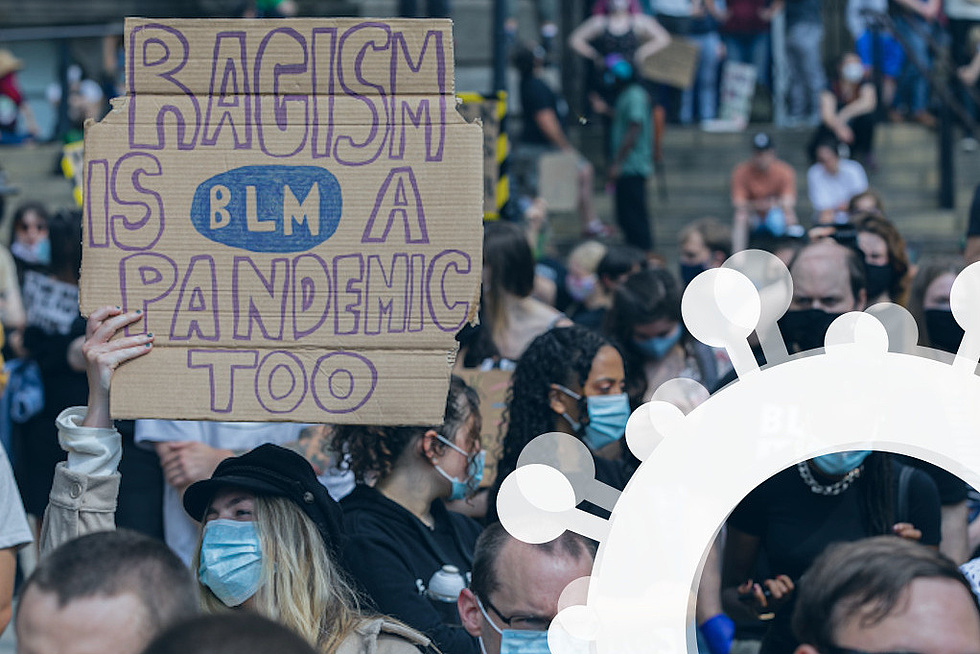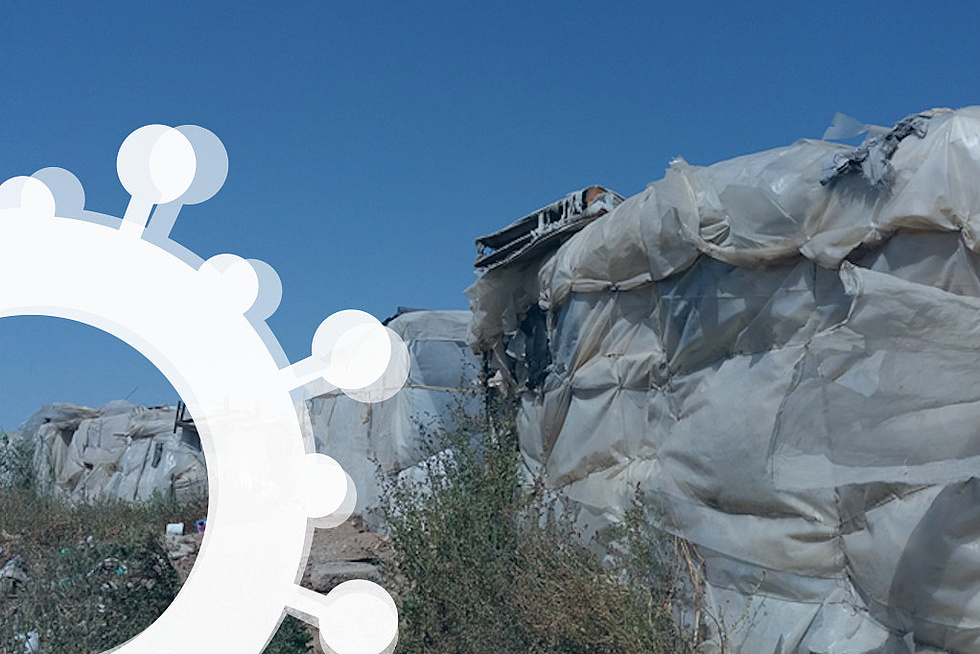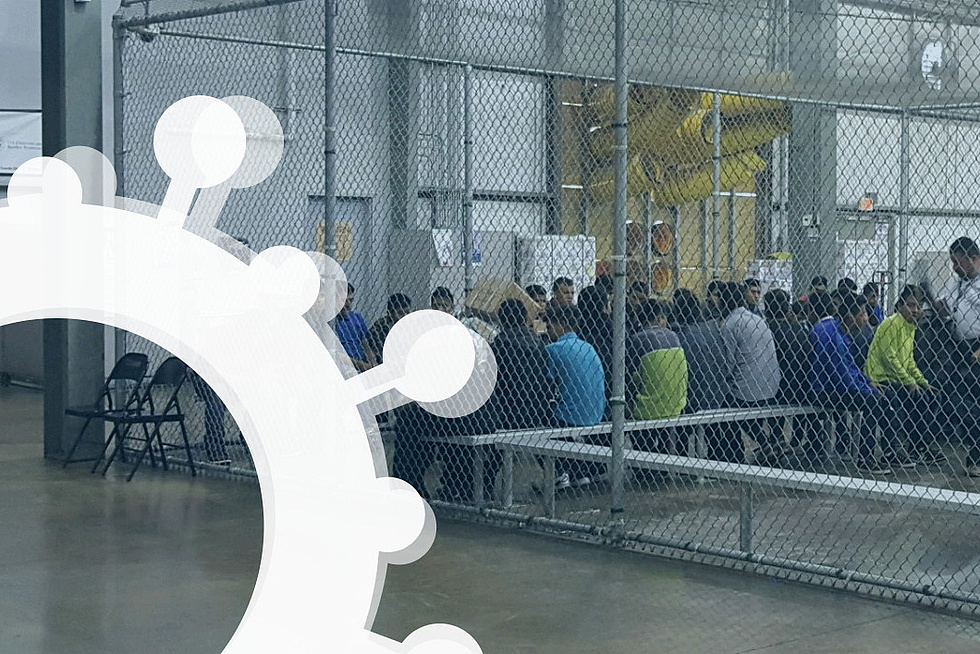The cost of human lives as a direct result of the virus continues to accelerate at the time of writing and the continued efforts to prevent the spread of the disease through lockdowns and restrictions continues to rippling shocks through service provisions, supply chains, economies and more. It might seem insensitive to speak of economic impacts in light of the rising number of COVID-19 deaths, but it is also a necessity when trying to better understand the human cost of COVID-19 in regard to migration, especially race and migration.
The impact of COVID-19 on African economies has been severe, with an estimated 40 million people on the continent being pushed into extreme poverty by the impact of the pandemic. The severity of the impact is not a direct result of the severity of the COVID-19 outbreak in Africa, however, and given how African countries have managed to so far contain the outbreak of the virus against initial apocalyptic predictions by Western Media outlets and the WHO, driving context-sensitive innovation in testing and deploying strong contact tracing early, the economic toll on African nation seems disproportionate.
The simplest explanation is that COVID-19 is exacerbating inequalities, globally and nationally, with the impact on African economies in many ways emerging a corollary of persisting inequalities of colonialism, being affected regardless of their COVID-19 disease burden. The global racial inequality is impacting livelihoods, something that is predicted to also shape migration in the years to come.
In the short-term, evidence suggests that mixed migration flows from Sub-Saharan and North Africa are continuing to Europe, in spite of border securitization and closures, higher risks of exploitation by smugglers, and greater uncertainty. The recent spate of drownings in the Mediterranean Sea of migrants trying to reach Europe are a grim reminder of the past, when the European Union’s attempts to close its external border, even though effectively reducing arrivals, also increased the risks for migrants. The current closures of borders during COVID-19 have already been associated with changes in smuggling, with a shift towards more organized crime and higher rates of exploitation and journeys are riskier both in Africa reaching the Mediterranean and while crossing.
In the long-term, predictions on changes in migration that take the economic impact into account expect an increase in both mixed migration and displacement for a variety of reasons, mostly related to effects of the economic impact of COVID-19, such as instability and poverty. Together with the already observed trends, this is cause for concern from a race and migration perspective, bearing in mind that the ‘migrant-crisis’ in 2015 and 2016 was a highly racialised surge in migration, which saw an exacerbation of racism; has been linked to the rise of far right populism in many European counties; lead to the arguably anti-African externalization of EU borders; saw a disproportionate focus on portrayals of specifically black African migrants; and led to serious racial injustice faced my non-white migrants.
COVID-19 and Race
As the impact of COVID-19 on migration threatens a resurgence of racial injustice for displaced Africans, COVID-19 and racial injustice also intersect within countries in the global north, where it is exacerbating racial inequalities at national level. In the US and Europe, black people and other minorities are more likely to lack access to prevention and health services with African Americans being far more likely to die from the disease, are harder hit economically by lockdowns, and are disproportionately targeted by police during curfews, lockdowns and movement restrictions.
The measures to contain the spread of the disease and the care for those who have contracted the virus take place against a backdrop of pervasive racial discrimination and exclusion that has a long history long predating the current pandemic. It is, in many ways, the same backdrop that coloured the response to the 2015 and 2016 influx of migrants across the Mediterranean.
At the same time, the pressure on Western economies from lockdowns has resulted in an almost unexpected recognition of contributions of migrant labour, especially low-skilled migrant labour as part of a focus on ‘essential services’. Even the European Union, often reluctant to recognise the contribution of all migrants, notes in a Knowledge for Policy post that ‘low-educated migrants are strongly represented in occupations that are key for hosting societies (e.g. personal care workers in health service, drivers, transport and storage workers, food processing workers). Yet, available evidence suggests that migrants are among the vulnerable groups that are paying the heaviest toll of the crisis.’ The reliance on migrant labour and the impact of movement restrictions and border closures on the availability of labour in key sectors such as agriculture, has led to a shift in political narrative and a growing awareness of issues of migrant exploitation. Even though the focus is on migrants in many cases, the link between race and migration is not entirely lost in these emerging narratives, especially due to their recognition of low-paid jobs.
It would be a simplification to only highlight this new-found recognition of mostly African labour without also pointing out return migration. In Europe, the main example are African migrants departing from Spain to Morocco as a result of lost income, uncertainty about future travel options and exclusion from response plans. These migrants often pay inflated prices to smugglers to reach their countries of origin, yet their likelihood of returning for seasonal agricultural in Spain is high.
Racial justice and migration
Having covered the impact of COVID-19 on migrants and race, it is worth spending a moment to reiterate the links between migration and race before and beyond COVID-19, especially in the EU-Africa relationship, but also in global strides to make commitments to tackling racial injustice in migration governance. For the Pan African Network in Defense of Migrants’ Rights (PANiDMR) the two topics were indivisible and already in 2015 Network members noted that the response of the European media to arriving migrant from mostly Syria and Afghanistan focused on imageries of black African migrant, in spite of their comparatively low numbers.
But it is not only the media, but also policies and resources are show a link between anti-immigrant and racist sentiments, although race often remains a silent, implied, and unspoken aspect. For example, one of the key outcomes of the 2015 ‘crisis’ is Europe’s most substantial migration focused funding mechanism, the EU Emergency Trust Fund for Africa (EUTF). In a problematic linkage of development aid and migration politics, the EUTF focuses on keeping Africans in Africa, through projects that often fail to improve the livelihoods of those who are meant to benefit. Aside from a significant portion of the funding being committed to strengthening borders, maybe most telling is that only 1.5% of the fund’s budget is allocated to regular migration schemes between the EU and Africa andbetween African countries.
The more recent and global instrument of the Global Compact for Safe, Orderly and Regular Migration (GCM) is, comparatively, a step in the right direction and one of the biggest achievements in strengthening migrant protection and recognising that migration is a phenomenon that requires close collaboration. Amongst its 23 objectives is a “commitment to eliminate all forms of discrimination, including racism, xenophobia and intolerance, against migrants and their families.”
But there are more critical voices that are getting louder and gaining traction in a push for racial justice and its connection with migrant rights. These are the voices of many young people who self-organise and come together, for example in the Black Lives Matter movement, with clear global demands for the recognition of historic injustices and their role in the continued discrimination and inequality of people of colour. These dissenting voices often go beyond Western liberal narratives of ending discrimination by historicizing the lacking access to rights of people of colour.
Conclusion
COVID-19 has created an unprecedented situation: European politicians praise the usually forgotten and exploited migrant workers for their efforts; their racialised migration policies intersect with border closures as black bodies continue to wash up on European beaches; advances in global responsibility sharing, especially the Global Compacts, are reemphasised; and movements for racial justice are leading to protests against deep rooted inequalities that are made more apparent by COVID-19, blurring the lines between protecting populations and policing minorities in an effort to curb a disease.
Whether this set of sudden shifts and exacerbations present a genuine opportunity for change is something that time will tell. It is nonetheless clear that COVID-19 highlights the need for a clear and unambiguous call for action for racial justice for migrants, both by exposing the level of injustice unlike any other crisis in recent history and by opening cracks of recognition in a narrative of migration that is often silent on the issue of racism.
Recommendations
- Amplify the voice of grassroot movements for racial justice and encourage them to speak out about people of colour in migration to highlight the injustice faced by this marginalised group.
- Revisit the Durban Plan of Action calling on “all States to review and, where necessary, revise any immigration policies which are inconsistent with international human rights instruments”
- Research and advocacy on migrants rights needs to deliberately and consistently highlight the link between race and migrant status to avoid ‘colour-blind’ and ahistorical narratives on migrant rights.
- Cooperation between civil society organizations in countries of origin and destination needs to be strengthened to develop shared analysis on race and migration with recommendations for policy makers in all regions at all levels of government.
- Advocate for the European Union’s next development funding mechanism (NDICI) and the EU-Africa Partnership to include the new emerging narratives of migrants as indispensable and valued to build towards a genuine partnership.
- Researchers and academics should be intentionally inclusive paying special attention to diversity of voices and representations of migrants of ethnic, racial and linguistic groups, and consumers of knowledge should look towards researchers and academics of colour and their perspectives and insights on migration, race and the world after COVID-19.
- Funders and philanthropists need to allocate resources for the intersecting issues of gender, class, race, xenophobia and migration.
Author:
Nunu Kidane is Director of Priority Africa Network , a non-profit in the US, founding member of the Pan African Network in Defense of Migrant Rights, the Black Immigration Network and Global Ambassador for Africans Rising for Justice, Peace and Dignity. She makes her life between the US and Ethiopia, working on migration in Africa, African migrants and Diaspora communities in the US on the intersections of race, gender and migration. She was recognized in 2012 by the Obama Administration as “Champion of Change” for her work in diaspora communities.
This article is part of a series of articles by the Global Coalition on Migration and the Friedrich-Ebert-Stiftung on international migration during the COVID-19 pandemic. they analyse the impact of the pandemic on international migrants protection highlighting the various human rights instruments, international law, the global compact and treaties that protect the rights of migrants. The articles focus on various topics such as; gender, labor, regularization,race, xenophobia, security, borders, access to services and detention.






